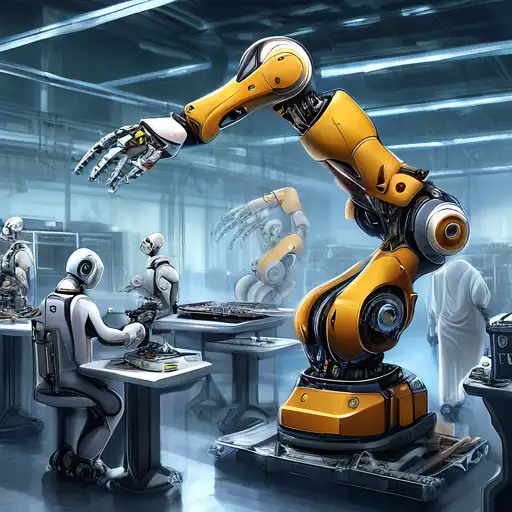The Revolutionary Impact of Robotics on Modern Manufacturing
In the heart of the industrial revolution, the introduction of robotics into manufacturing processes has marked a pivotal shift towards efficiency, precision, and scalability. This transformation is not just about replacing human labor but enhancing capabilities, reducing errors, and opening new avenues for innovation.
Enhancing Efficiency and Productivity
Robotics technology has significantly increased production rates by performing tasks at a speed and consistency unmatched by human workers. Automated systems can operate 24/7, reducing downtime and maximizing output. For instance, in the automotive industry, robots assemble parts with precision, ensuring each vehicle meets stringent quality standards.
Reducing Costs and Improving Safety
By integrating robotics, manufacturers can cut down on labor costs and minimize workplace injuries. Robots are designed to handle hazardous materials and perform dangerous tasks, such as welding or heavy lifting, thereby protecting human workers from potential harm.
Customization and Flexibility
Modern robotics systems are adaptable to various tasks, allowing for greater customization in manufacturing. This flexibility enables companies to quickly switch between product lines without significant downtime or retooling costs, catering to the ever-changing consumer demands.
The Future of Manufacturing with Robotics
The future holds even greater possibilities with advancements in AI and machine learning, enabling robots to make decisions and learn from their environment. This evolution promises to further revolutionize manufacturing processes, making them more efficient, sustainable, and innovative.
For more insights into how technology is shaping industries, explore our technology trends section.
Challenges and Considerations
Despite the benefits, the integration of robotics into manufacturing comes with challenges. The initial investment can be substantial, and there's a need for skilled personnel to operate and maintain these systems. Moreover, the shift raises questions about the future of employment in the sector.
However, the potential for robotics to transform manufacturing is undeniable. As technology continues to evolve, so too will the ways in which we produce goods, making the industry more competitive and resilient in the face of global challenges.
Discover more about automation in industry and its impact on the global economy.
